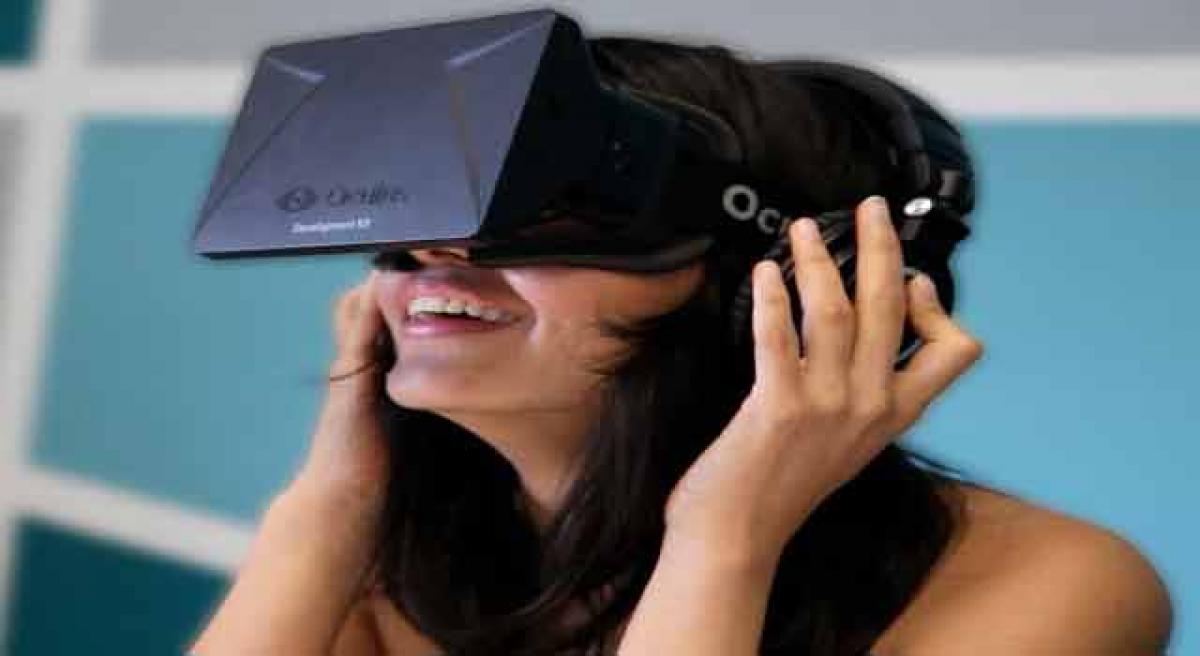Live
- Red roses given to BJP counterparts
- Dhankhar a govt spokesperson, biggest RS disruptor: Kharge
- Fire breaks out at petrol pump
- Facial recognition-based attendance in Sectt from today
- TGPSC to be restructured on par with UPSC
- Gabba pitch to have pace and bounce
- Not taking a break after Olympics left me emotionally drained
- SSC public exams from March 17 to 31
- Pathetic state of Zoo Park-Aramghar underpass turning deadly for commuters
- Losses galore for PCB if it pulls out of Champions Trophy over hosting deadlock
Just In

Using the Oculus Rift virtual reality (VR) headset, a team of researchers has discovered that a simple technique borrowed from ophthalmology dating back to the Victorian Age can improve user performance in VR environments.
New York: Using the Oculus Rift virtual reality (VR) headset, a team of researchers has discovered that a simple technique borrowed from ophthalmology dating back to the Victorian Age can improve user performance in VR environments.
The technique known as "monovision" allows each eye of an observer to focus to a different distance. While the "monovision" technique is common practice in ophthalmology, electrical engineers from Dartmouth College and Stanford University is the first to report its effectiveness for VR applications with a custom-built set up.
Using Oculus Rift, the research team created a prototype system with focus-tunable liquid lenses allowing for a range of optical modifications.
On the one hand, this prototype allowed for creating adaptive focus cues which resulted in higher user preferences and better performance in virtual reality.
On the other hand, the system also allowed for testing of an extremely low-tech modification that leverages monovision.
"My lab has been conducting research on computational near-eye display optics for a few years now,
and tapping into the wealth of techniques commonly used in ophthalmology and by vision science is key for delivering better experiences with virtual reality systems," said study co-author Gordon Wetzstein, assistant professor of electrical engineering at Stanford.
Virtual and augmented reality provides a unique platform for entertainment, education, collaborative work, basic vision research and other uses.
But these displays still need to overcome technical and perceptual issues to provide high-quality and immersive user experiences.
"In addition to showing how adaptive focus can be implemented and can improve virtual reality optics, we reveal that monovision can also improve user performance in terms of reaction times and accuracy," added led author Robert Konrad from Stanford.
The findings will be presented at the "ACM Conference on Human Factors in Computing Systems" on May 9."Practical optical solutions for virtual reality are crucial to moving this technology to increasingly more comfortable and immersive experiences.
Our work shows that monovision has the potential to be one such solution," noted co-author Emily Cooper from Dartmouth.

© 2024 Hyderabad Media House Limited/The Hans India. All rights reserved. Powered by hocalwire.com







